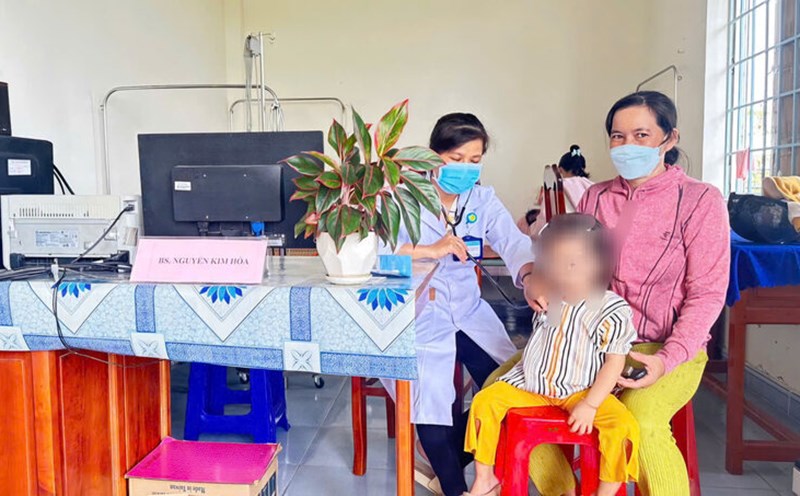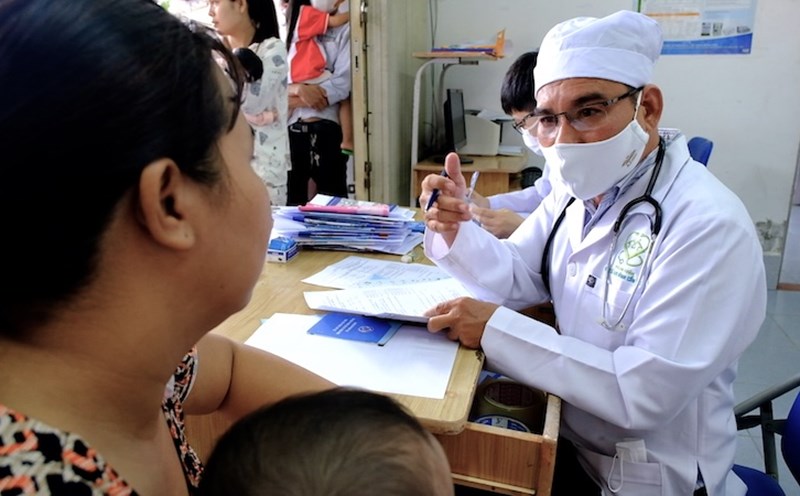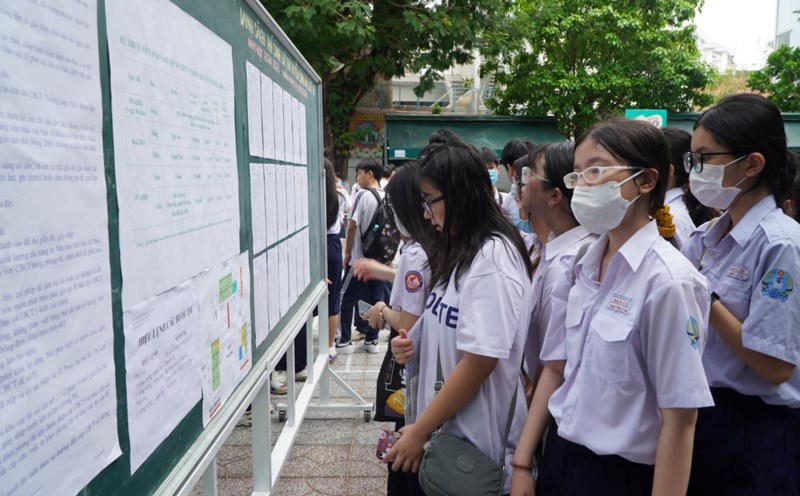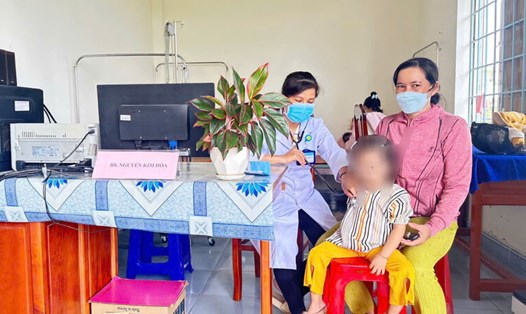The risk of measles increased again in Vietnam, the expanded immunization program has officially put measles vaccine in vaccination since October 10, 1985, contributing to a sharp decrease in the incidence of the disease.
However, the epidemic still broke out in a 5-year cycle (2014-2015, 2019-2020, 2024-2025).
Although the vaccination rate has reached over 95% in recent years, before that, the period of vaccination rate has not exceeded 90%, leading to the accumulation of children who have not been vaccinated and immunometrical.Measles vaccine is highly effective, but only 1 shot will reach about 85% of immunity, while injecting 2 stuffs will reach 90%.
The vaccination rate in remote areas and ethnic minority areas is still low, facilitating the outbreak.However, in the period of 2020-2023, due to the influence of Covid-19, the measles vaccine rate dropped sharply, many places under 90%, increasing the risk of epidemic in 2024-2025.
In 2024, the whole country recorded more than 45,758 cases of measles rash, including 7,838 positive cases and 18 measles -related deaths.From the beginning of 2025, the country has recorded about 40,000 cases of measles suspected, 5 cases of measles -related deaths; The highest number of measles suspected cases in the South (57%), Central (19.2%), the North (15.1%), the Central Highlands (8.7%).
At the National Hospital of Pediatrics, from 2024 to the first 3 months of 2025, there were a total of 3,799 positive measles tests (tests by PCR and IGM methods).In particular, 2,690 cases of diseases were hospitalized for treatment.The number of measles cases from January 2025 to the end of March 26, 2025 was 1,894 cases, nearly double the total number of cases of the year 2024 (796 positive cases).
Measles not yet mutated Dr. Ha Anh Duc - Director of the Department of Medical Examination and Treatment, Ministry of Health - said that so far, measles have nothing mutant.
However, the Ministry continues to explain genetic sequences to see if the disease changes or mutations.Currently, measles is still under control.
Lessons from measles in 2014 are very valuable, therefore, cross -contamination in the hospital will be very recommended for health facilities to identify the problem and take the initiative to seriously apply the guidance of the Ministry of Health, how to minimize the number of cross -contamination cases in the hospital.
According to Dr. Hoang Minh Duc - Director of the Department of Disease prevention, measles had a strong outbreak in 2014 and was at risk of recurring because many children have not been fully vaccinated in the CIVI -19 period and the local shortage of vaccine.The health sector is implementing a compensation and injection campaign in 54 provinces and cities at risk, targeting the group of children from 6 months to 10 years of age that have not been injected or injected.The Ministry of Health has added 500,000 doses of vaccine to support localities.The current number of cases is that children who have not been injected or injected are not enough, in which many cases in Da Nang and Ho Chi Minh City recorded in children under 9 months old.Vietnam aims to eliminate measles by 2025.
Although the health force has tried to "go to each alley, knock each house, review each object" in the measles vaccine campaign campaign, but due to many difficulties, according to statistics, as of March 31, nationwide recorded 682,000 injections ...
Dr. Le Kien Ngai - Head of the Department of Pediatric Control and Pediatrics With public health.
According to the World Health Organization (WHO), hesitant to the vaccine - that is to refuse to inject even existing vaccines - one of 10 global health threats. The cause includes ignorance, concerns of side effects, subjective effects, false information online, blind beliefs in "natural resistance", or religious and cultural reasons. Children do not inject vaccines at risk of serious illness, even death. In the long run, the community will face the risk of outbreak and overloaded health systems. Anti -vaccine is a "fire" that causes the disease to return. In order to prevent, it is necessary to promote the right communication on the benefits of vaccination, increase the role of health workers, control false information and mobilize the whole society to participate.











